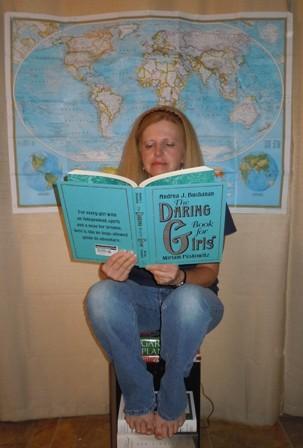Cheryl Hughes: My Little Song
Dolly Parton was listening to her car radio when she first heard Whitney Houston’s version of the song, “I Will Always Love You,” a song Dolly had written years before. Dolly said her first reaction was to say, “Is that my little song?” It was a case of the writer reacting to the power of the singer’s interpretation.
I watched the memorial service for Whitney Houston on Saturday. That’s not something I usually do—I don’t like hype—but for some reason I couldn’t not watch it. The service was four hours in length. The pastor, Marvin Winans, who delivered Whitney’s eulogy, thanked Whitney’s mom, Cissy, for allowing the service to be broadcast. “You brought the world to church,” he said. He was right.
Often, a memorial service for an entertainer ends up becoming more like a stage for the entertainers who are there to eulogize the deceased. This service wasn’t like that. Yes, there were entertainers who spoke, but the focus was not on themselves.
I was touched by the stories Kevin Costner, her co-star in the film “The Bodyguard,” recounted about the feelings of insecurity Whitney had over her first screen test. I was moved by the songs of BeBe and CeCe Winans. I was inspired by the words of Reverend Marvin Winans. But the words I carried with me, after it was all said and done, were the words of her real-life bodyguard, who told the crowd, “We’ve got to love our entertainers, not ridicule them. They give so much to us.”
I’ve thought a lot about our expectations of entertainers—musicians, sports stars, actors, anybody in the spotlight, really. It is as if they are fair game for criticism and ridicule because of the lives they have chosen. Besides, this line of reasoning goes, they are compensated for our harsh scrutiny by all of the money they make, because money makes up for everything.
I don’t agree. Money is simply anesthesia. It provides diversion, escape for a few minutes, but it rarely makes up for anything, especially not rejection. I am more in line with the words of Teddy Roosevelt:
“It is not the critic who counts, nor the man who points out how the strong man stumbled, or where the doer of deeds could have done them better. The credit belongs to the man who is actually in the arena … whose face is marred by dirt and sweat and blood … who strives valiantly … who errs and comes short again and again … who, at the worst, if he fails, at least fails while daring greatly, so that his place shall never be with those cold and tired souls who know neither victory nor defeat.”
“Is that my little song?” Dolly had asked herself. The song was barely recognizable because it had lent itself to the interpretation of a woman who was willing to put herself out there. As the pallbearers carried the body of Whitney Houston from the church, her recording of Dolly’s little song played over the sound system. I remembered a line from the foreign film, “Babette’s Feast,”: “Throughout the world sounds one long cry from the heart of the artist: Give me the chance to do my very best.”
- Log in to post comments




























Comments